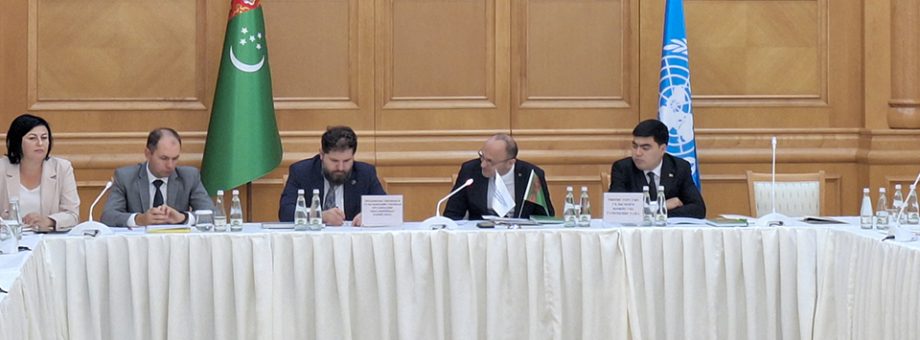A seminar on the protection of grain crops is being held in Ashgabat

A training session is underway in Ashgabat as part of a joint project between the country's agricultural ministry and the Food and Agriculture Organisation of the United Nations (FAO) entitled «Supporting Capacity Building for Grain Pest Control». The two-year project began earlier this year and will continue until 2027. During this time, several seminars are planned covering a wide range of phytosanitary controls for grain crops, new chemical mixtures, and technologies for suppressing the growth and activity of insect pests and weeds.
According to the organisers, a pilot experimental plot will be established on the lands of the Grain Research Institute. Various yield improvement methods and techniques, both traditional and new to Turkmenistan, will be demonstrated, and field training will be held for personnel, agronomists from administrative bodies (hakimliks), grain producers from farm associations, and farmers from neighbouring farms.

Representatives of the scientific community, agricultural universities, and agricultural entrepreneurs will be invited to review the results of the research. Artur Shamilov, a representative of the FAO Regional Office for the European Union and Central Asia (Budapest, Hungary), who is participating in a number of working meetings and events, including the multi-day seminar, emphasised that several similar scientifically focused agroecological projects, including cotton protection, are currently being implemented in Turkmenistan with FAO assistance.
Andrey Jivyh (Deputy Director) and Lyubov Gridyakina (Head of the Plant Protection Department of the Krasnodar branch of the Federal State Budgetary Institution «Russian Agricultural Centre» also spoke at the current seminar.

Guests from Turkmenistan presented an overview of grain crop protection in Russia, including a pest registry and control methods. The range of pesticides used in fields and an analysis of the prevalence of various pests were discussed. Particular attention was paid to locusts, a common topic promising for cooperation between neighbouring countries, the Central Asian region, the CIS, and Eurasia as a whole. This focus on the dynamics of the insect's habitat expansion prompted lively discussions and an exchange of opinions.
During the exchange of experiences, specialists from Turkmenistan also shared their experiences, presenting the range of tasks they perform, the specifics of the ministry's infrastructure, and the network of scientific and practical units. Quarantine species—plants and insects whose breeding grounds are systematically suppressed—were also discussed.
The seminar is being held in the conference hall of the Archabil Hotel in the capital until the end of the week, with a break for the guests to tour the quarantine and plant protection facilities and services operating within the Ministry of Agriculture of Turkmenistan.


 NEWS
NEWS